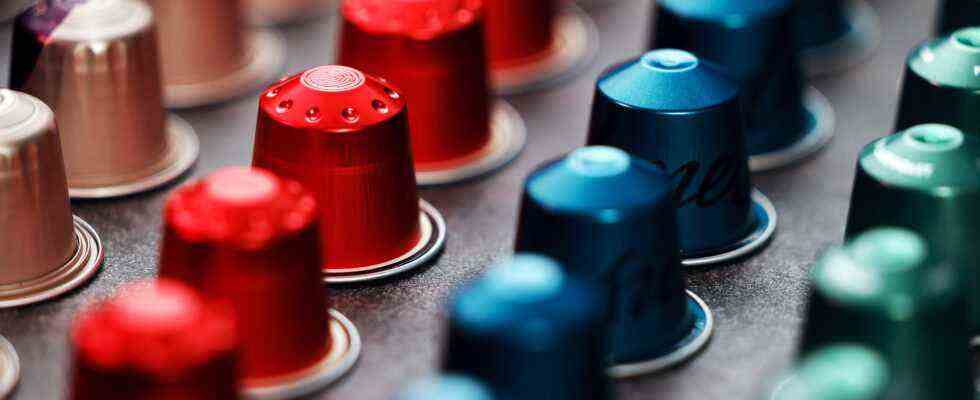Status: 01/29/2022 3:17 p.m
Supposedly climate-neutral water, sugar bombs disguised as vitamin-rich sweets: the food industry wants to cash in on the need for more sustainability, consumer advocates warn.
The brazen lies are in Manuel Wiemann’s office in Berlin. Every year, the Foodwatch consumer advocate awards negative prizes to the food industry. The brazen winners are: An imported water in a plastic bottle that pretends it’s good for the climate. Sweets that advertise vitamins and consist of 60 percent pure sugar. Supposedly compostable coffee capsules that are actually plastic waste.
“The advertising promises turn out to be lies,” says Manuel Wiemann. “The food industry has recognized the climate crisis and mountains of plastic waste as emotional and socially relevant problems that they can exploit for marketing purposes.” Many manufacturers act as if you could save the world by buying their products.
“The food industry serves up so many different advertising lies that consumers have no chance of unmasking them,” says the Foodwatch expert. “Systematically disadvantaged are single parents with children who have no time for detective work on supermarket shelves, as well as older people with poor eyesight who cannot decipher the small print.”
“Stop Green Advertising Lies”
That is why there is an urgent need for better laws to protect against fraud. For example, the new government must prohibit advertising sugar bombs as healthy, labeling environmentally harmful products as “climate-neutral” or pretending to be a false country of origin. “The federal government must stop green advertising lies on non-ecological products,” demands Wiemann.
The food industry supports efforts to create a uniform “sustainability label,” says Manon Struck-Pacyna from the German Food Association. “An initial regulation proposal from the European Commission is expected for 2024, and until then it is important to agree on uniform approaches, especially when evaluating the most diverse sustainability aspects.
It’s all in the fine print
Sabrina Schulz from the Berlin consumer center doesn’t want to wait that long. She advises not to pay attention to the name on the front when shopping “This can also be a fantasy term and is more used for advertising. The name of the product is usually in the small print on the back of the product and objectively describes what kind of food it is “says Schulz.
The designation also gives an indication of the quality of the product. A “strawberry milk mix drink” should actually have been made from strawberries. A “mixed milk drink with strawberry flavor”, on the other hand, can only contain aroma.
A look at the food traffic light always helps, adds Manuel Wiemann from Foodwatch. “The food traffic light Nutri-Score provides orientation for a balanced diet. It makes it possible to compare the nutritional quality of products,” says Wiemann. The Nutri-Score has been proven to lead to healthier shopping behavior. The problem: “The Nutri-Score is only voluntary in Germany and not mandatory,” criticizes the consumer advocate. “Food Minister Cem Özdemir must campaign for a labeling obligation towards the EU.”
Sugar bomb as “fitness muesli”
Looking at the small print is annoying for some consumers, says Sabrina Schulz. “However, this is often the only way to find out what exactly is in the products. If you only look at the front of the packaging, you may not be buying what you really don’t want.” Wiemann agrees: “When making a purchase decision, customers primarily look to the label. That’s why products and especially the front side are full of advertising promises that can hardly be relied on.”
For example, the food industry can call a sugar bomb “fitness muesli” or print self-created labels for supposed “climate neutrality” on the packaging. It is a grueling task, reports Wiemann.
But the recent success of his work motivates him. A coffee company wants to stop the misleading advertising of its coffee capsules as “compostable” and “biodegradable”. The company is thus reacting to a warning from foodwatch. “Coffee capsules are a huge waste of resources – to praise this disposable packaging as particularly sustainable is brazen greenwashing,” says Wiemann and hopes that politicians, consumer protection groups and consumers will continue to put pressure on the food industry together.

